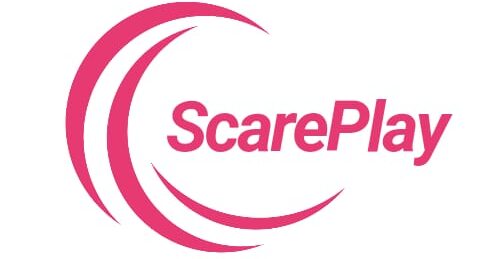What is Reimbursement?
Reimbursement refers to the process of compensating someone for expenses they have incurred, often in a business or healthcare context. In this article, we’ll explore the latest reimbursement news, including updates on policies, changes in healthcare reimbursements, and how these developments affect both businesses and individuals.
Latest Reimbursement News
1. Healthcare Reimbursement Changes
One of the most critical updates in reimbursement news comes from the healthcare sector. Recent changes in government policies have led to adjustments in how healthcare providers are reimbursed for services. This includes changes to Medicare and Medicaid reimbursement rates, which directly impact hospitals, clinics, and other healthcare providers. These changes aim to streamline the reimbursement process, ensuring that healthcare providers are fairly compensated for the services they offer.
2. Business Travel Reimbursement Updates
In the business world, reimbursement news has been focused on changes to travel and expense policies. Many companies are updating their reimbursement procedures to align with new tax regulations and corporate governance standards. These updates often involve changes in the types of expenses that are reimbursable, the documentation required, and the timelines for reimbursement. These adjustments are particularly important as businesses return to more frequent travel post-pandemic.
3. Tax Reimbursement Developments
Tax-related reimbursement news is also making headlines, particularly with regard to changes in tax deductions and credits. Recent updates from tax authorities have clarified how certain expenses, such as home office setups and remote work-related costs, can be reimbursed and claimed on tax returns. These changes are especially relevant for businesses and individuals navigating the evolving landscape of remote work.
4. Insurance Reimbursement Adjustments
Insurance companies are frequently at the center of reimbursement news, especially when it comes to changes in how claims are processed and paid out. Recent developments have seen adjustments in reimbursement rates for certain types of claims, including those related to natural disasters and health emergencies. These changes aim to improve the speed and accuracy of reimbursements, providing better support for policyholders.
How Reimbursement News Affects You
Understanding the latest reimbursement news is crucial for both businesses and individuals. Whether you’re a healthcare provider navigating new Medicare policies or an employee seeking reimbursement for work-related expenses, staying informed can help you maximize your reimbursements and avoid potential pitfalls.
1. For Businesses
Businesses must stay up-to-date with reimbursement news to ensure they are complying with the latest regulations and standards. This includes updating internal policies to reflect new tax laws, adjusting travel and expense procedures, and ensuring that employees are reimbursed promptly and fairly. Staying informed also helps businesses avoid costly errors and potential legal issues related to reimbursement claims.
2. For Healthcare Providers
Healthcare providers are directly impacted by changes in reimbursement news, particularly those related to government healthcare programs. Understanding these changes is essential for maintaining financial stability and ensuring that services are reimbursed accurately and on time. Providers must stay informed about new policies, rates, and documentation requirements to avoid disruptions in their reimbursement processes.
3. For Individuals
For individuals, reimbursement news can affect everything from tax filings to insurance claims. Staying informed about changes in reimbursement policies can help you ensure that you’re receiving the full compensation you’re entitled to, whether it’s for work-related expenses, healthcare services, or insurance claims. Understanding the latest updates can also help you navigate the often complex reimbursement processes more effectively.
Challenges in Reimbursement
Despite the importance of reimbursement, there are several challenges that businesses, healthcare providers, and individuals face. These challenges include delays in payment, complex documentation requirements, and frequent policy changes that can create confusion and frustration.
1. Delays in Reimbursement
One of the most common issues highlighted in reimbursement news is delays in payment. Whether it’s a business waiting for travel expenses to be reimbursed or a healthcare provider awaiting payment from insurance companies, delays can create significant financial strain. Staying informed about the latest news can help you anticipate and manage these delays more effectively.
2. Complex Documentation Requirements
Another challenge often discussed in reimbursement news is the complexity of documentation requirements. Ensuring that all necessary paperwork is completed accurately and submitted on time can be daunting, particularly in industries with stringent regulations. Understanding the latest updates and best practices can help streamline this process and reduce the likelihood of errors.
3. Frequent Policy Changes
Policy changes are a constant in the world of reimbursement news. Whether it’s new tax laws, healthcare reimbursement rates, or changes in insurance policies, staying on top of these changes is essential for ensuring that reimbursements are processed smoothly. Regularly checking for updates and seeking professional advice when needed can help you stay compliant and avoid potential issues.
Conclusion
Reimbursement news is an essential topic for businesses, healthcare providers, and individuals alike. Staying informed about the latest updates and changes in reimbursement policies can help you navigate the complex world of reimbursements more effectively. Whether you’re dealing with healthcare claims, business expenses, or tax deductions, understanding the latest reimbursement news is key to ensuring that you receive the compensation you’re entitled to.
In conclusion, keeping up with reimbursement news can help you avoid delays, manage documentation requirements, and stay compliant with ever-changing policies. By staying informed, you can ensure that your reimbursement processes are as smooth and efficient as possible.



